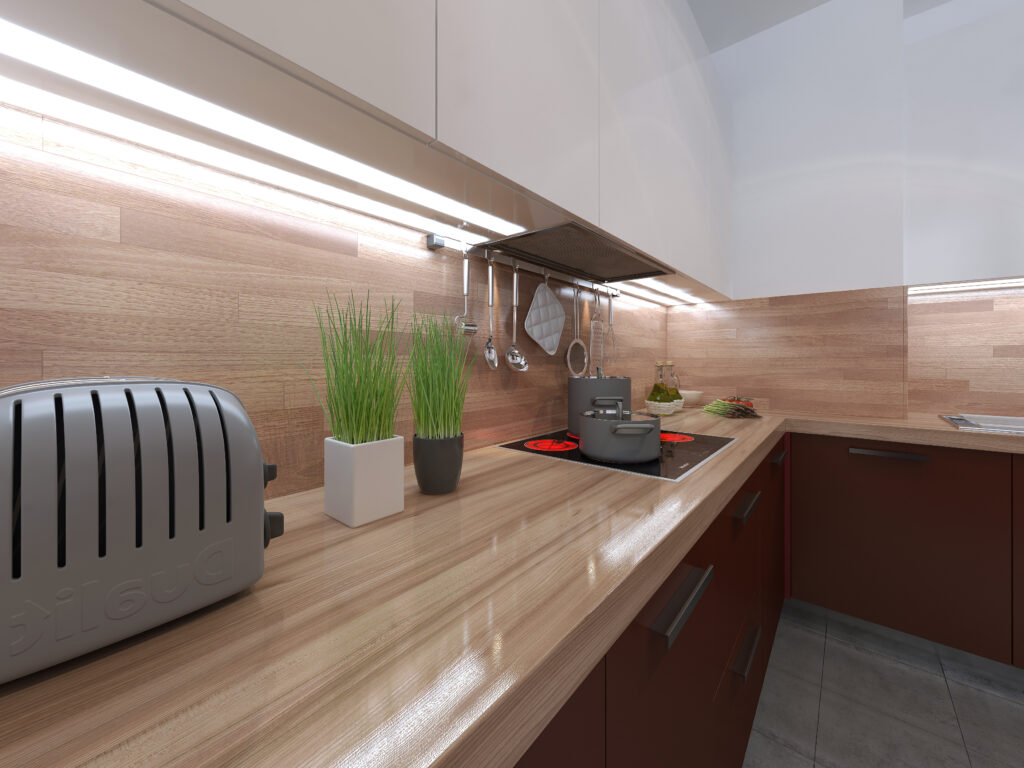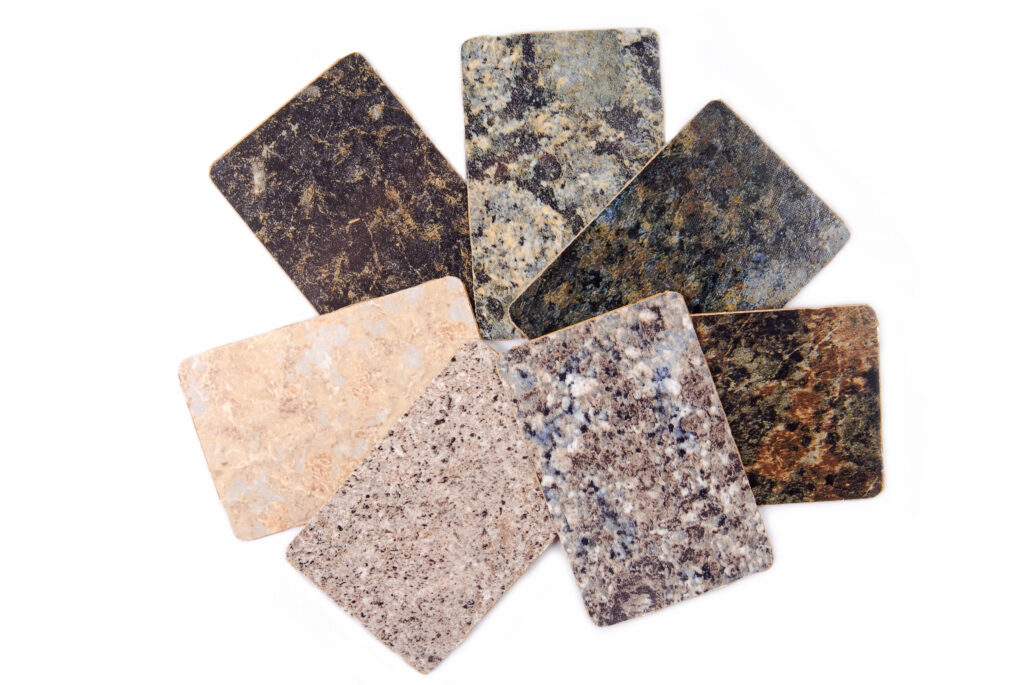Laminate Countertop vs Stone Countertops for Your Kitchen or Bathroom
A laminate countertop offers highly customizable characteristics, along with the benefit of affordability. On the other hand, stone countertops are the preferred choice for kitchens and bathrooms because they are more durable and longer-lasting than laminate. Both have benefits and drawbacks which contribute to the decision of which countertop is best for your kitchen.
Learn everything you need to know about the difference between laminate and stone countertops. Find out how they differ in appearance, price, and functionality. And see which countertop offers the most desirable attributes for your kitchen or bathroom renovation.
Laminate Countertop vs Stone: Which is Better for Your Kitchen?
Laminate countertop surfaces are a combination of materials that serve to create a customized aesthetic in your kitchen or bathroom. On the other hand, stone countertops offer less aesthetic customization, but last longer. But, at the end of the day, most countertops – whether laminate or stone – are manufactured to your exact specifications.

Laminate countertops are made of natural wood particle board, paper, resin, and an adhesive agent. The bulk of the countertop surface is composed of particleboard. The wood particleboard remains hidden, however, by a plastic laminate that bonds to the surfaces of the wood.
Granite countertops and other stone countertops are either quarried or manufactured. Quarried stone countertops are simply a cut piece of rock, whereas manufactured stone countertops comprise a mixture of natural stone, silica, quartz, and resin. For this reason, you can customize the color of your stone countertops in a similar way to that of laminate.
Aesthetic Differences Between Laminate and Granite Countertops
Granite countertops offer an earthy and natural aesthetic quality, which you can customize to complement your kitchen or bathroom’s existing color scheme. In the manufacturing process, granite can be treated to exhibit a range of textures and mineral patterns. The finished product can take on a very similar aesthetic to that of natural quarried granite, or exhibit a smooth glossy finish.

The customizable aesthetic of a laminate countertop is more limited to the capabilities of a manufacturer. High-quality manufacturers can create the aesthetic of natural stone on a plastic laminate facade. And, while it does not feel like natural stone to the touch, it can mimic the pattern of granite, marble, soapstone, or any other type of natural stone.

Heat and Moisture Resistant Properties: Laminate vs Granite Stone
Laminate exhibits vastly different heat-resistant qualities to that of natural stone or stone resin countertops. On the one hand, granite countertops are extremely heat-resistant, so they do not melt or damage when in direct contact with hot pots or pans. On the other hand, laminate countertops burn and melt much more quickly when exposed to direct heat, such as from a pot or pan that is hot off the stove.
Laminate performs better with moisture than heat, but it is still more susceptible to moisture damage than natural or manufactured stone countertops. For instance – granite stone countertops feature moisture resistance, thanks to the mineral structure of the stone, as well as the finishing treatment applied to the surface. Laminate does feature moisture resistance, but prolonged contact is more likely to seep underneath the laminate surface and damage the adhesive bond. If left unattended, water damage can make its way into the countertops particleboard and cause extensive rot, mold, and mildew.
How Does Laminate Compare to the Durability of Stone Countertops?
Granite or natural stone countertops are also much harder and more durable than laminate. Granite is one of the strongest and most durable materials on the planet – so much so, that the granite slabs within the Great Pyramid of Giza remain consistent with the proportions to which it was cut over 5,000 years ago. Laminate, on the other hand, has longevity of about 10 years.
When it comes to durability, the same distinction holds between the two materials. Granite stone is extremely durable and resistant to scratches, dents, and general damage. Laminate can easily succumb to cracks, dents, and discoloration.
Which Countertop Material is Right for You?
Laminate and granite represent two polar or pendulum opposites in almost every way. Laminate countertops are affordable and easily replaceable. Stone countertops come at a higher price per square foot, but they have much more strength and longevity.
Maintenance is, perhaps, the one area in which laminate is preferable to stone. Granite countertops require occasional maintenance to keep the surface finish resistant to germs and moisture accumulation. Laminate, on the other hand, requires very little maintenance over the life of your countertops, besides for standard upkeep.
At the end of the day, your budget might play the biggest role in determining the best countertop material for your kitchen or bathroom. Want to find out how the price differs between different countertop materials? Talk to a countertop associate for a free consultation on your kitchen renovation, and to learn more about the pros and cons of choosing a laminate countertop.